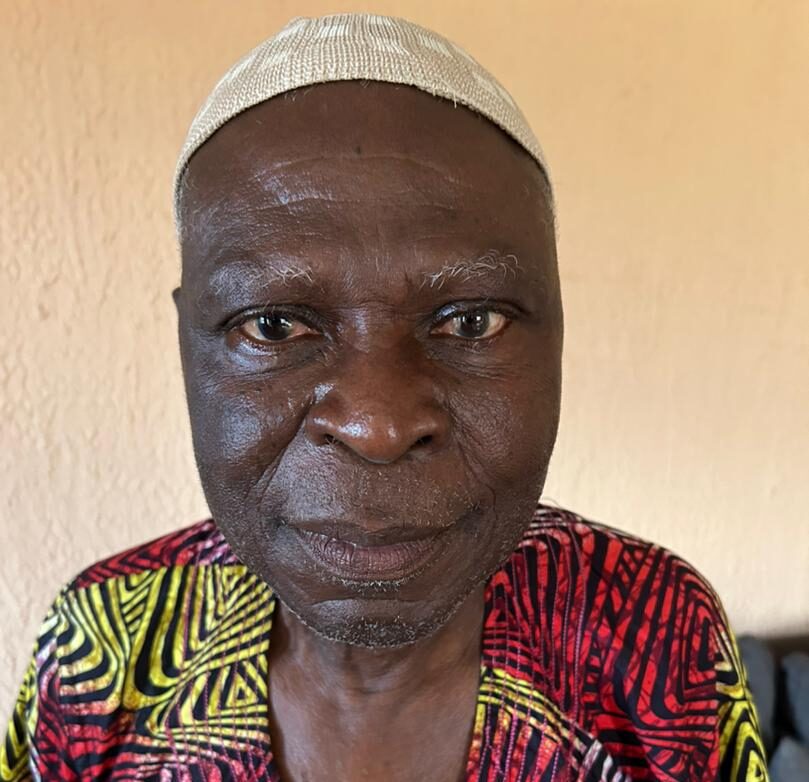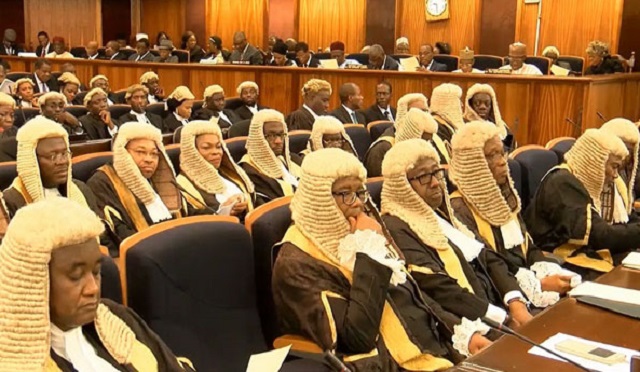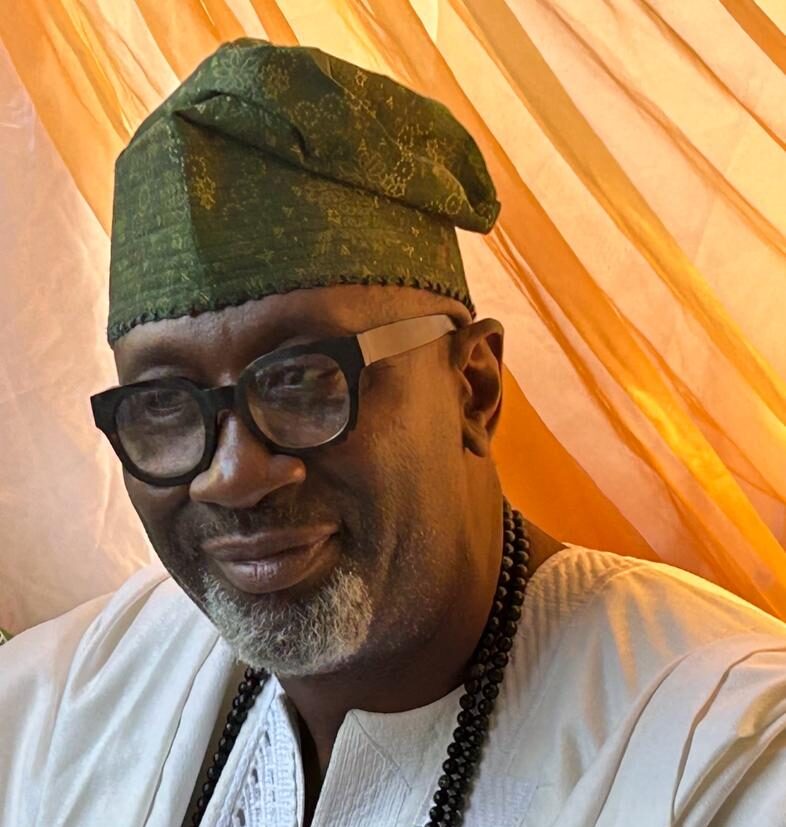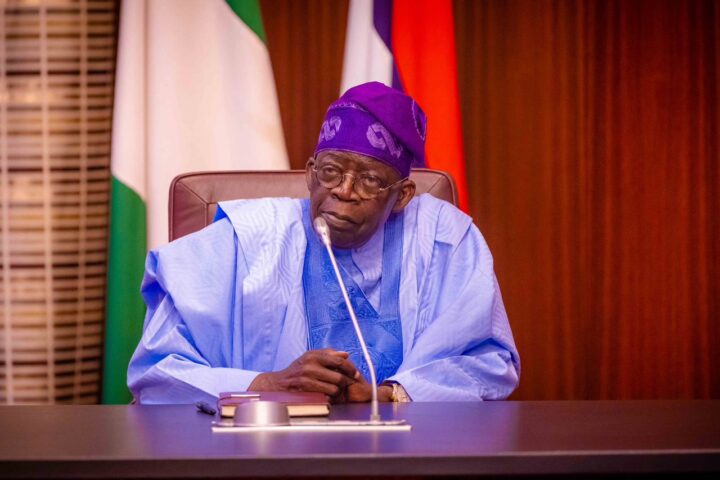The political conundrum in Ogun state leading to 2027.
Bashorun Adeshina.
The political landscape of Ogun state is currently in a state of oblivion, and according to Bashorun, a founding member of the progressive movement and a part of the national caucus of Afenifere, firmly stands who stands firmly behind the leadership of Pa Adebanjo, as the authentic leader of the group.
Despite the emergence of several groups vying for power and influence, Adesina Bashorun, said the current situation was actually engineered by Aremo Olusegun Osoba, the former two-time governor of the state and the leader leader of Ogun state progressive. In a recent interview with the correspondent of Tribune Times in Ijebu Ode, Bashorun revealed that he had predicted this political oblivion years ago and even wrote a letter to Osoba warning him about the impending crises within the progressives
Bashorun Adesina and his group while praying that tinubu should succeed in bringing an end to the suffering of the citizens of this country also enjoy him to develop the political will to restructure the country for the progress and stability of the country. He also enjoy the citizens to prevail on their respective governor to administer the state in line with the dictate to the constitution
Bashorun a founding and leading members of the national caucus of AFENIFERE, a prominent socio-cultural organization in Nigeria. His contributions to the organization have been instrumental in shaping its ideology and policies. As a founding member, Bashorun played a key role in establishing the core values and principles of AFENIFERE, which include promotion of Yoruba culture, preservation of Yoruba heritage, and advocacy for the rights and welfare of the Yoruba people.
Bashorun’s leadership within AFENIFERE has been characterized by his unwavering commitment to the organization’s objectives and his ability to mobilize support for its initiatives. His influence within the organization has also been felt in the formulation of its strategic direction and in shaping its responses to key political and social issues affecting the Yoruba people. As a leading member of the national caucus, Bashorun has been a driving force behind AFENIFERE’s efforts to promote unity and development within the Yoruba community and to advance the interests of the Yoruba people at the national level.
Bashorun’s role as a founding and leading member of the national caucus of AFENIFERE has been pivotal in the organization’s growth and impact. His leadership has been essential in advancing the rights and welfare of the Yoruba people and in shaping the organization’s vision for a better future for the Yoruba community.
Which informs the support behind Peter Obi, the former governor of Anambra state and a prominent member of the Labour party, to represent the south-east in the past presidential elections. Bashorun’s stance on these political developments sheds light on the deep divisions and power struggles within the progressive movement in Ogun state and beyond.
Furthermore The conundrum facing progressives in Ogun State is a complex one, rooted in historical political dynamics and the desire for equitable power distribution among the four divisions of the state. The call for the Ijebu division to produce the next governor in 2027 has ignited discussions and debates among political gladiators and citizens alike.
Since the return to democratic governance in 1979, the governorship of Ogun State has been held by individuals from various backgrounds, reflecting the diversity and richness of the state’s political landscape. The last time the Ijebu division held the governorship was in 1979, and since then, power has shifted among different divisions, parties, and military backgrounds. This history has created a power imbalance and a sense of disenfranchisement among some groups within the state.
The insistence on the Ijebu division taking the gubernatorial seat in 2027 raises questions about the need for fair and inclusive political representation. While it is important to recognize and address historical imbalances, the decision to prioritize one division over others may also create tensions and divisions within the state.
As progressives navigate this conundrum, they must strive to find a solution that promotes unity, fairness, and effective governance for all of Ogun State’s divisions. It is imperative to consider the complexity of the state’s political history and ensure that the path chosen leads to a more equitable and cohesive future for all.
The high cost of food in Ogun state is a pressing issue that has been a cause for concern among its residents. Adeshina Bashorun, a concerned citizen, has highlighted the potential for Ogun state to excel in agriculture and support its neighboring state, Lagos. He questions the state government’s decision to allow Lagos to enter into agricultural partnerships with Niger state, given Ogun’s proximity and potential in the agricultural sector.
Furthermore, Bashorun expressed his concern about the lack of support and access to the state governor for the appointed elders forum in Ogun state. Bashorun, a respected community leader, has recently voiced his concerns about the lack of access to the state governor by the people of the state who are willing to offer him advice on how to develop the state optimally. This issue is a matter of great importance as it directly affects the democratic process and the overall development of the state.
Bashorun’s concern stems from the belief that the governor is not receiving input from a wide spectrum of the population, which can limit the effectiveness of his decision-making process. In a democracy, it is essential for leaders to be open to hearing from all sectors of the society, as this fosters inclusivity and ensures that the voices of all citizens are heard.
Furthermore, the lack of access to the governor by those who are willing to offer advice on the development of the state can lead to missed opportunities for progress and growth. There are individuals within the state who possess valuable expertise and insights that, if heeded, could greatly contribute to the optimal development of the region.
Many of the elders are reportedly struggling to communicate with the governor and have not received their monthly allowances in recent months. This has raised concerns about the state’s ability to effectively govern and address the needs of its citizens.
Also the high cost of food in Ogun state is a multi-faceted issue, influenced by factors such as agricultural policies, access to resources, and effective governance. It is imperative for the state government to prioritize the development of the agricultural sector and address the concerns raised by its citizens. By investing in agriculture and supporting local farmers, Ogun state has the potential to reduce the cost of food and enhance food security for its residents. It is essential for the government to engage with its citizens and stakeholders to address these pressing issues and work towards sustainable solutions.
The political landscape in Ogun state is a complex one, with various ethnic groups vying for representation and leadership. In recent times, there has been a growing concern among the Yewa people about their chances of producing a governor for the state. This concern has been further compounded by the emergence of a candidate who has spent the majority of his political career outside of Ogun west, and is now being touted as a potential successor to the current governor.
Many within the Yewa community believe that the continuous promotion of a candidate who has already spent 24 years in elective positions in Lagos, and has now clinched the senate in Ogun west, is a disservice to the indigenous politicians within the region. There is a strong sentiment that there are several competent and qualified individuals from Ogun west who could represent the interests of the people effectively.
Names such as GNI, BOT, and the current Deputy Governor have been mentioned as individuals with the integrity and qualifications to seek the governorship position. However, the fear is that the opportunity may once again slip away from the Yewa people, and be taken by individuals from other ethnic groups such as Egba or Ijebu.
It is evident that the Yewa people are on the verge of losing the opportunity for governorship, and it is imperative that they reassess their political course and ensure that competent and qualified individuals are given the chance to lead. The future of Ogun state and its diverse population depends on fair and inclusive representation, and it is crucial that the Yewa people do not lose sight of this.
In conclusion, it is imperative for the state governor to create avenues for engaging with a diverse range of citizens who are willing to offer advice on the development of the state. This will not only contribute to a more inclusive and representative democratic process but also lead to more effective and well-informed decision-making.
Bashorun Adesina
Mobile No: 09164693291



